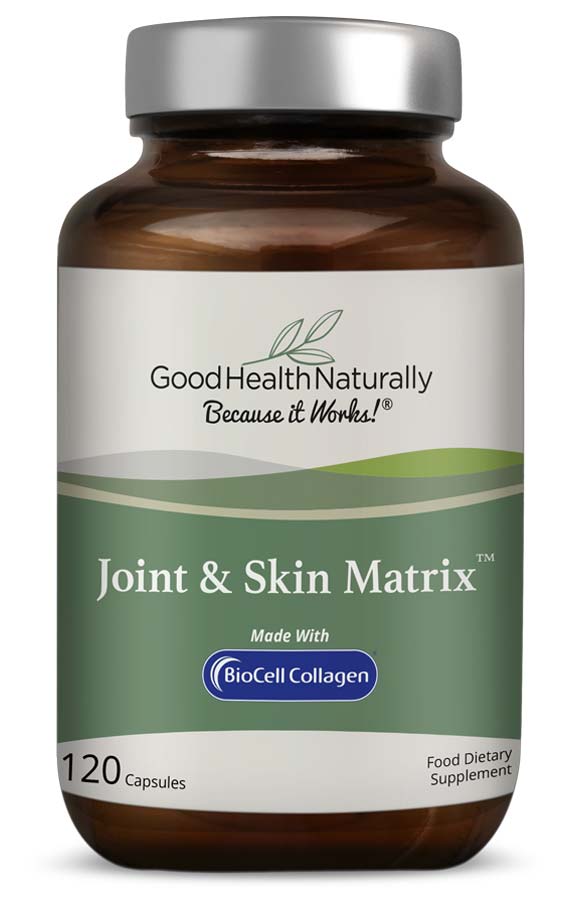Maintaining joint health is crucial for overall mobility and quality of life. One key nutrient that has gained attention in this area is collagen, particularly Type 2 collagen. This type of collagen has shown significant promise in supporting joint health and alleviating joint pain. In this article, we’ll explore the benefits of collagen for joint health, delve into the science behind Type 2 collagen, and review research on the clinically studied BioCell Collagen® to understand its effectiveness.
Understanding Collagen and Its Types
Collagen is the most abundant protein in the human body, making up about 30% of our total protein content. It is a major component of connective tissues, including skin, bones, tendons, and ligaments. There are several types of collagen, but the most relevant to joint health are Type 1, Type 2, and Type 3.
Type 1 Collagen: Primarily found in skin, tendons, and bones.
Type 2 Collagen: Mainly found in cartilage and cushions joints and maintains flexibility.
Type 3 Collagen: Present in the skin and blood vessels.
Why Type 2 Collagen for Joint Health?
Type 2 collagen is essential for maintaining the structure and function of cartilage. Cartilage is a flexible, rubbery tissue that covers the ends of bones in joints, providing cushioning and enabling smooth movement. As we age, cartilage can wear down, leading to joint pain and conditions such as osteoarthritis.
Research suggests that Type 2 collagen helps to maintain and repair cartilage, reduce inflammation, and improve joint flexibility. Unlike other types of collagen, Type 2 collagen directly targets the joints, making it particularly effective for joint health.
BioCell Collagen®: A Promising Solution
BioCell Collagen® is a patented dietary supplement that contains a unique composition of hydrolysed Type 2 collagen, chondroitin sulfate, and hyaluronic acid. This combination is designed to support joint and skin health. What sets BioCell Collagen® apart is its ability to deliver these critical nutrients in a highly bioavailable form, ensuring better absorption and effectiveness.
Research on BioCell Collagen® and Joint Health
Several studies have investigated the effects of BioCell Collagen® on joint health. Here are some key findings:
Promotes Joint Comfort and Mobility
Research has demonstrated that BioCell Collagen® can significantly improve joint comfort and mobility. In a randomised, double-blind, placebo-controlled trial, subjects taking 2 grams of BioCell Collagen® daily for ten weeks reported significant improvements in joint comfort on days 35 and 70 compared to the placebo group. The study also showed that BioCell Collagen® users experienced enhanced physical activity levels, with a minimum of 30% improvement in 71% of subjects (Schauss et al., 2012).
Supports Cartilage Health
A clinical pilot trial evaluating the safety and efficacy of BioCell Collagen® in adults found that 2 grams daily led to a 40% improvement in joint comfort compared to a placebo. This study highlights the potential of BioCell Collagen® to support cartilage health and overall joint function, with no reported adverse events associated with its use. This trial was presented at the International Conference of Experimental Biology in 2004.
Enhances Recovery and Connective Tissue Health
BioCell Collagen® has also been shown to support connective tissue protection and recovery. In a pilot study published in the Journal of the International Society of Sports Nutrition, daily supplementation of 3 grams for six weeks was found to enhance recovery following weight training and positively impact biomarkers of tendon and ligament connective tissue health. This indicates that BioCell Collagen® not only aids in joint health but also supports overall connective tissue function.
How to Incorporate Type 2 Collagen into Your Routine
To harness the benefits of Type 2 collagen for joint health, consider the following tips:
Supplements: Look for high-quality supplements with BioCell Collagen® containing hydrolysed Type 2 collagen.
Dietary Sources: While less common than other types, Type 2 collagen can be found in chicken cartilage. Bone broth made from chicken bones is a good natural source of Type 2 collagen.
Consistency: Regular supplementation is vital. Consistent intake over several weeks is necessary to observe significant improvements in joint health.
Complementary Nutrients: Collagen supplements can be enhanced by pairing them with other joint-friendly nutrients, such as vitamin C, which aids collagen synthesis.
Conclusion
In conclusion, collagen, particularly Type 2 collagen, plays a pivotal role in maintaining joint health. BioCell Collagen® has emerged as a leading ingredient due to its unique composition and proven efficacy in improving joint function, reducing discomfort, and combating inflammation. Incorporating Type 2 collagen for joint health into your routine through high-quality supplements and dietary sources can lead to healthier, more flexible joints, enabling you to stay active and pain-free.
References:
https://pubmed.ncbi.nlm.nih.gov/22486722/
https://www.ncbi.nlm.nih.gov/pmc/articles/PMC8308696/
https://jissn.biomedcentral.com/articles/10.1186/1550-2783-11-S1-P48
Product Recommendation





